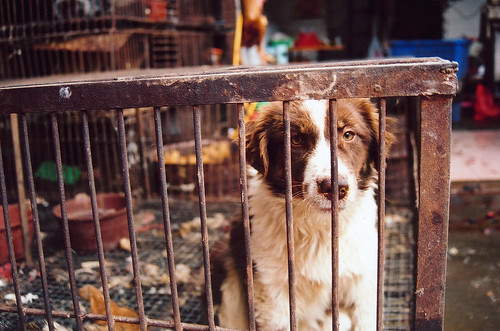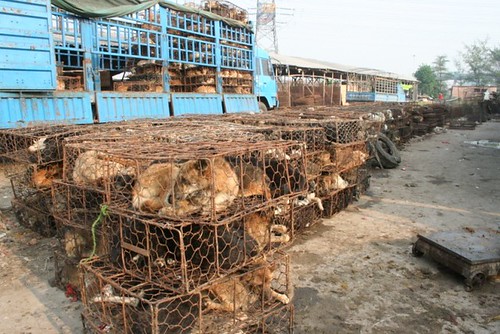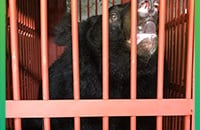Stopping Yulin, stopping the dog meat trade
18 June 2015
As tens of thousands of international animal lovers add their names to our campaign against Yulin dog meat festival, our team in China is resolved to ending the event and the wider dog meat trade.
Just two weeks after the launch of #ItsNoFestival, more than 70,000 people have signed an open letter to China’s dog meat traders, urging them not to attend.
Meanwhile, Animals Asia has sent four reports to Chinese authorities, clearly documenting mass illegality in the dog meat industry supply chain which directly fuels health risks and violent crimes.
The far reaching investigations into people’s attitudes to the industry also revealed dog meat eating to be a minority activity, while as much as 65% in some areas support a total ban on slaughter for consumption.

The reports reached 13,580,000 people on Weibo (Chinese social media) while more than 50 Chinese media outlets provided coverage of their release.
The killing of an expected 2,000 animals at this year’s summer solstice in Yulin, has become the focal point for a movement against an industry which is responsible for the slaughter of 10 million dogs annually.
With the highest echelons of government being made aware of both the scale of the problem and the depth of public feeling backing legislation, animal lovers in China are watching the situation closely to see how the authorities in Yulin deal with an event drawing increasing international and local ire.
Media coverage within China covering the opposition to the Yulin dog meat festival has been extensive. An editorial in this week’s China Daily – considered indicative of the ruling party views – has given hope to those who consider dogs to be friends not food by backing a clampdown on meat which doesn't match food safety guidelines.
Animals Asia will push for an absolute ban on the dog meat trade – rather than see it legitimised through regulations that would inevitably be breached. However, even acknowledgement of the issue is a clear step in the right direction.
A similar clampdown at Yulin in 2014 saw the number of dogs slaughtered fall by an estimated 80%. It’s a huge step in the direction but we’ll only be happy when the figure is zero.
BACK







 Freedom after two decades: Moon bears Nang and Mua rescued
Freedom after two decades: Moon bears Nang and Mua rescued
 With heavy hearts we say goodbye to our beloved Tulip
With heavy hearts we say goodbye to our beloved Tulip
 Three moon bears rescued from notorious bear bile farming hotspots in Vietnam
Three moon bears rescued from notorious bear bile farming hotspots in Vietnam